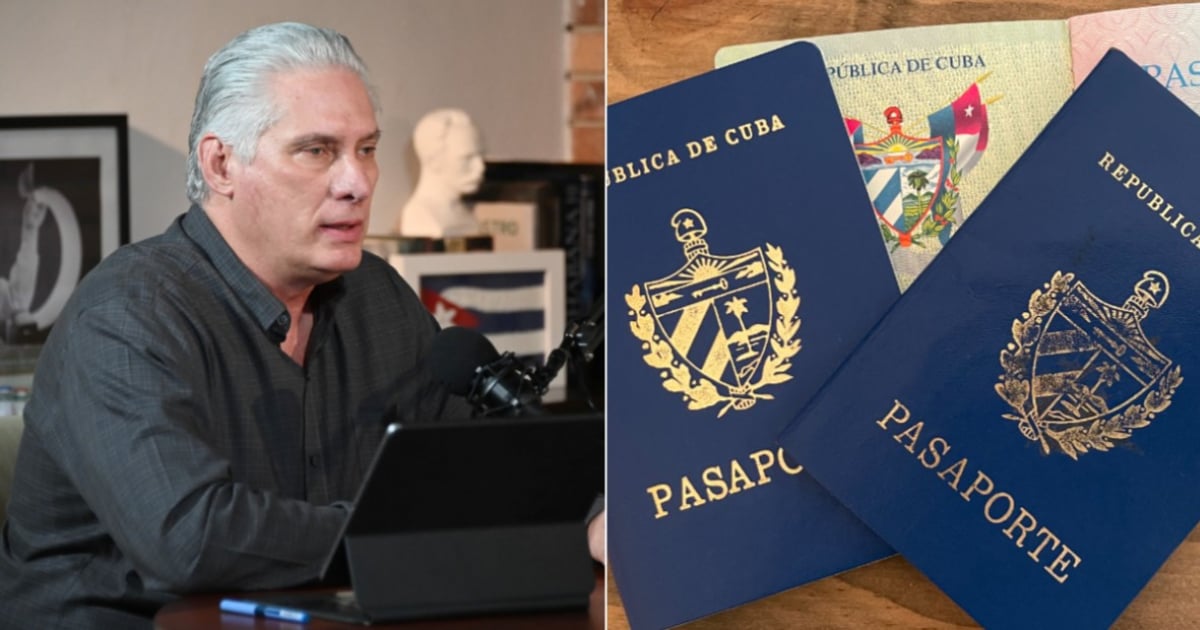
Related videos:
The Cuban government established the grounds for revoking citizenship from residents abroad.
The regime announced the proposal for the Citizenship Bill, which has not yet been approved, but is most likely to be passed in July during the upcoming session of the National Assembly.
According to the regulations, it is the "president" who decides whether a Cuban should be deprived of their citizenship, for which a Presidential Decree must be issued.
Chapter III "Deprivation of Cuban Citizenship" states in its Article 54 that Cubans cannot be deprived of their citizenship, except for legally established reasons.
Subsequently, Article 55.1 establishes two grounds: one is enlisting in any type of armed organization with the aim of undermining the territorial integrity of the Cuban State, its citizens, and other individuals residing in the country.
The second cause is "from abroad, carrying out acts contrary to the high political, economic, and social interests of Cuba, as deemed by the relevant citizenship authority." This formulation is so broad that it could encompass any activity that the regime perceives as a threat, including opponents or political activists.
In December, the government released a National Terrorist List that included personalities and influencers from Miami such as Alexander Otaola, Eliecer Ávila, and Alain Lambert (Cuban Paparazzi), who could fall under these allegations, as they are accused of inciting "actions that disrupt social order in Cuba through violent acts...".
The draft law, in its article 55.2, specifies that the citizenship authority may revoke the citizenship of a Cuban only if it is proven "beyond a doubt" that they have committed one of the stated causes, regardless of whether they hold another citizenship or do not reside effectively in the country, and a corresponding Presidential Decree is issued.
However, the regulation states that if someone engages in actions that severely harm Cuba's national security, jeopardize state stability, international relations, or the overall health of the population, the citizenship authority may issue a Presidential Decree even if the requirements and formalities for processing the case are not met.
"The right to regain Cuban citizenship can only be exercised once, regardless of the reason for its loss," the text adds.
The regime has been claiming for decades that it was working on a Citizenship Law, but this has been repeatedly postponed. The lack of regulations allows the government to impose obligations on citizens without guaranteeing full rights, such as the ability to enter and exit Cuba with a Cuban passport, even for those with dual nationality.
The new Bill outlines the requirements and procedures for acquiring, renouncing, losing, and recovering citizenship, as well as the registration of citizenship.
The loss of Cuban citizenship, whether through deprivation or renunciation, has an impact on an individual's migratory status and is subject to the regulations set forth by the Migration Law, which is currently in the draft stage.
Both regulations, which must be approved next month, are highly interconnected.
The new Citizenship Law is necessary to regulate the process of renouncing citizenship, an option that will now be available to Cuban adults residing abroad who hold another citizenship, in order to prevent cases of statelessness.
The Migration Law will establish that Cubans who renounce their citizenship will be considered foreigners, and for the purposes of entering and leaving the country, they will be required to present a foreign passport and visa.
Filed under: